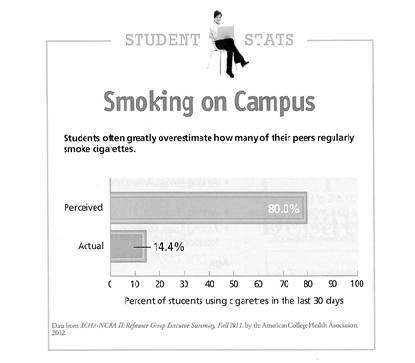Mark correct sentences C, run-ons RO, and comma splices CS in the space provided. I did not understand that we were to go skiing this weekend, I have a book report due on Monday
What will be an ideal response?
CS
You might also like to view...
Correlative conjunctions a. pair a coordinating conjunction with another word
b. stress the equality of the joined parts. c. include the pairings either/or , neither/nor , and not only/but also. d. all of the above
The best title for this selection is
1. Although precise statistics are hard to come by, experts guess that about one out of
every five smokers doesn’t smoke every day. If you’re one of these so-called “social smokers,” you probably believe that your behavior is unlikely to cause any harm. Are
you right? Here’s what the research says about social smoking.
2. Social smokers smoke more than they think. Although gathering precise data is challenging, researchers find that most self-described social smokers actually smoke a
few cigarettes per day. One nicotine addiction specialist notes that people who smoke just one or two cigarettes a week—true social smokers—are very rare indeed.
3. Social smoking leads to addiction. Tobacco researchers point out that the majority of social smokers are on the road to addiction. Initially they may only bum a cigarette
from friends occasionally, but soon they find themselves bumming cigarettes more often. It’s only a matter of time before they find themselves buying a pack a week, then
two or three packs a week. Although they believe that they can quit whenever they want, on average, social smokers end up addicted, and smoking for years. One-third of people who have ever tried smoking become daily smokers.
4. Social smoking increases risk of cardiovascular disease. Studies have shown an increased risk of cardiovascular disease at all levels of smoking. Moreover, smoking begins to exert this effect—causing fatal heart attacks and strokes—as early as age 35. The risk is especially acute for women who also use a hormonal method of birth control
(pills, patch, etc.). One mechanism by which smoking, even at low levels, promotes heart disease is by causing inflammation and dysfunction of the lining of blood vessels.
In one study, young, healthy people who smoked less than one pack per week were found to have a 35% reduction in blood vessel functioning compared with nonsmokers.
5. Social smoking increases cancer risk. Tobacco smoke itself is a carcinogen, as are at least 69 of its component chemicals. Because inherited genetic variations influence cancer rates, as do other determinants such as diet, stress, etc., the influence of
social smoking on cancer promotion is difficult to determine. However, any level of smoking increases the frequency of DNA mutations known to be associated with
cancer. And the risk of cancer is more closely tied to the number of years you’ve smoked—at any level—than to the number of cigarettes smoked per day. As one expert put it, you wouldn’t go out to your car four times a week and inhale exhaust fumes. But that’s the health equivalent of smoking cigarettes four times a week.
6. The bottom line? There is no safe level of exposure to cigarette smoke. If you smoke at all, you are at increased risk of nicotine addiction, cardiovascular disease,
cancer, and other illnesses. Get help, and quit.

a. Social Smokers.
b. Cancer Risks.
c. Tobacco Research.
d. Cardiovascular Disease.
Snow in New York in July would be a(n) _____________
a. biodegradable b. bona fide c. anomaly
Une lettre. Paul reçoit une lettre de sa femme dont il est séparé. Lisez la lettre et transformez les adjectifs entre parenthèses en adverbes.Cher Paul,Comment vas-tu? On me dit que tu supportes (1) ____________________ (difficile) notre séparation. Je m'inquiète à ton sujet. Je suis (2) ____________________ (franc) désolée que notre séparation te rende malade. Je croyais que notre vie de couple n'était pas (6) ____________________ (vrai) satisfaisante. Je veux (3) ____________________ (évident) que nous vivions (4) ____________________ (séparé), mais (5) ____________________ (heureux). Tu es allé voir le médecin, n'est-ce pas? Je pense que tu te sens (7) ____________________ (probable) mieux maintenant. Je t'aime encore, mais nous devons vivre (8) ____________________
(différent). Si tu as envie de parler, n'hésite pas à me téléphoner. Je t'embrasse.(9) ____________________ (Affectueux),Madeleine(7) Fill in the blank(s) with the appropriate word(s).